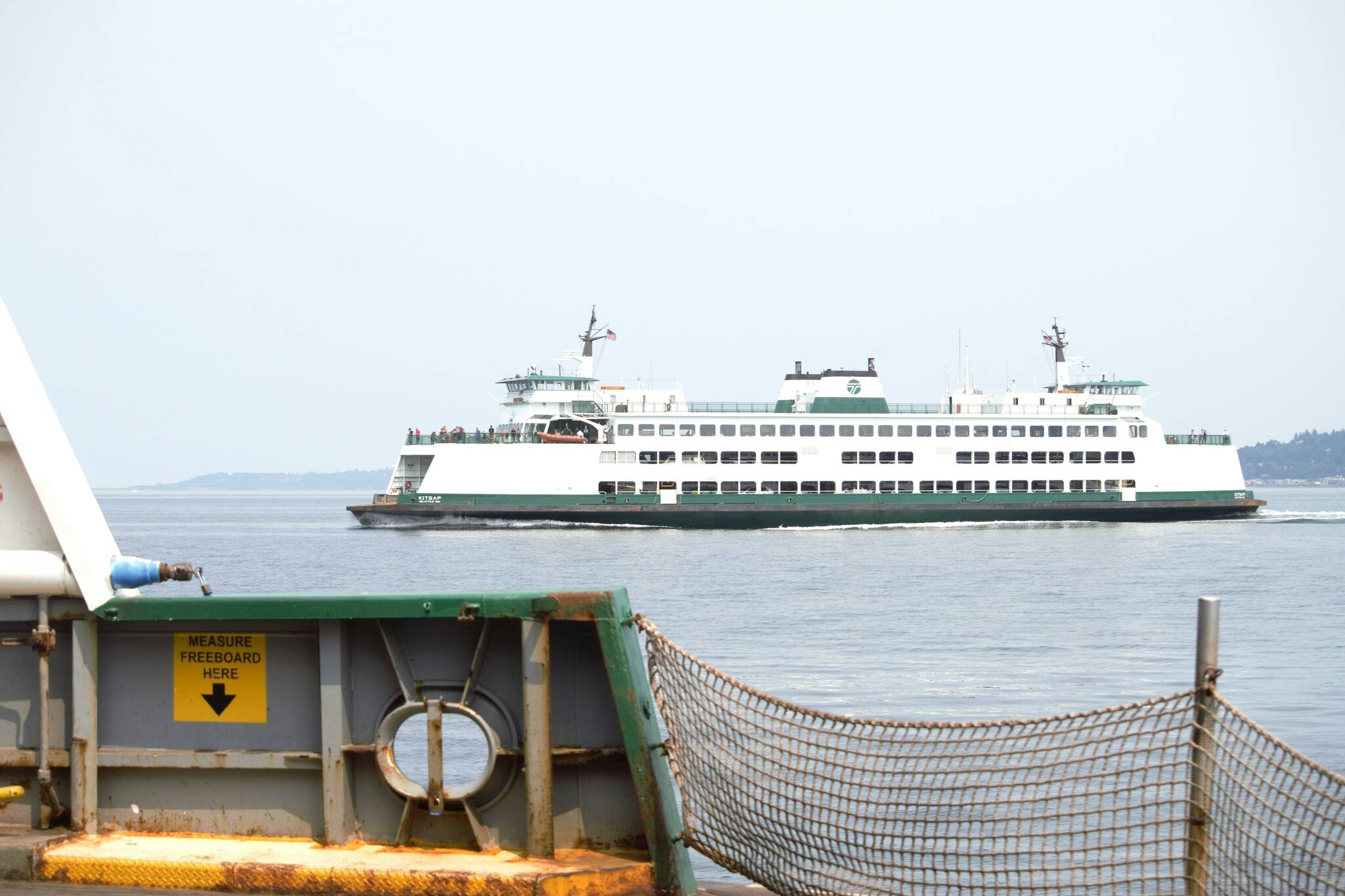Submitted by Marine Engineers’ Beneficial Association.
Washington State Ferries is the largest passenger ferry system in America, a critical link in the Washington state transportation system. Ferry ridership is up, but service is unreliable. In the past few years, thousands of sailings were canceled or delayed. As we approach the busiest season for Washington State Ferries, there is hope on the horizon that workforce shortages driving years of reduced and unreliable ferry service will be addressed.
Gov. Bob Ferguson named fixing our ferry system a top priority during his campaign. Once elected, the governor created a task force to identify key challenges and solutions to improve WSF service and reliability. Resolving employee compensation issues was a top task force recommendation. State legislators took action by passing House Bill 1264 in the 2025 legislative session. The bill was signed by Ferguson on May 17.
The measure modernizes the state salary survey process by expanding the comparator set to include regional and national shipping and ferry markets, ensuring an accurate and objective analysis conducted by a neutral third-party firm. It builds on proven policy solutions that have successfully addressed workforce challenges in other state agencies, such as the Washington State Patrol.
Union leaders and WSF engine room crew members called the bill an important first step toward addressing noncompetitive wages that are making it difficult for WSF to attract and retain experienced mariners.
Chris Schneider, an alternate staff chief engineer on the M/V Issaquah, commented: “When we are short on crew, WSF boats are legally mandated to tie up at the dock and not sail, per Coast Guard regulations. Cancelled sailings have a serious and harmful impact on ferry-dependent communities and businesses. Marine engineers may be out of sight, but we are absolutely indispensable. Competitive salaries for marine engineers will help WSF attract and retain the skilled crew we need to operate vessels in service today and in the future when Puget Sound has a full fleet of ferries serving Washington’s communities, businesses, and visitors alike.”
Eric Winge, WSF representative for the Marine Engineers’ Beneficial Association, provided additional context about the importance of the new salary survey:
“Washington State Ferries are an iconic symbol of our state, supporting our regional economy, tourism, and generating millions of dollars in revenue to the state. But over the last twenty years a serious and worsening crew shortage among skilled marine engineers who work in the engine room, below deck, invisible to the ferry riding public, has hobbled the system. WSF relies heavily on employees working overtime, resulting in employee burnout. Without a full crew of engineers, ferries cannot operate, and our vessels cannot be maintained or repaired.
“Not long ago, WSF was a crown jewel of Washington state, and one of the best paying ferry systems in the country. But WSF wages haven’t kept up with the market. As a result, skilled mariners are choosing private-sector shipping companies or other ferry systems that provide better wages and benefits. Compounding the problem has been the state’s reliance during contract negotiations on a flawed market salary survey—relying on inaccurate data and inept methodology—which has failed to capture the true market for maritime professionals, leaving WSF at a competitive disadvantage, unable to recruit and retain skilled mariners. This has led to operational disruptions, canceled sailings, and hardship for ferry-dependent communities and businesses.
“Last summer we reached crisis level service interruptions. Ferry communities and ferry crew members voiced our concerns. Our state lawmakers listened. In addition to improvements to the salary survey, other changes made, such as promoting entry level wipers to oilers and oilers to assistant engineers, will help avoid the extreme short staffing that caused thousands of ferry cancellations. However, we are headed towards a retirement cliff where nearly half of our most senior engineers will be eligible to retire by 2027, and it will take years to promote and recruit enough experienced engine room crew.
“Still unaddressed is a significant 20% wage disparity between deck crew and engine room. The legislative update to the salary survey process is an important and overdue step toward pay equity for essential ferry engineers, but until the state actually pays competitive wages for skilled engineers, our workforce will be strained. If we want a safe, reliable ferry system, we must invest in the skilled professionals who keep it running.”



